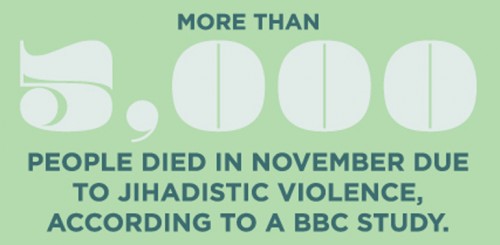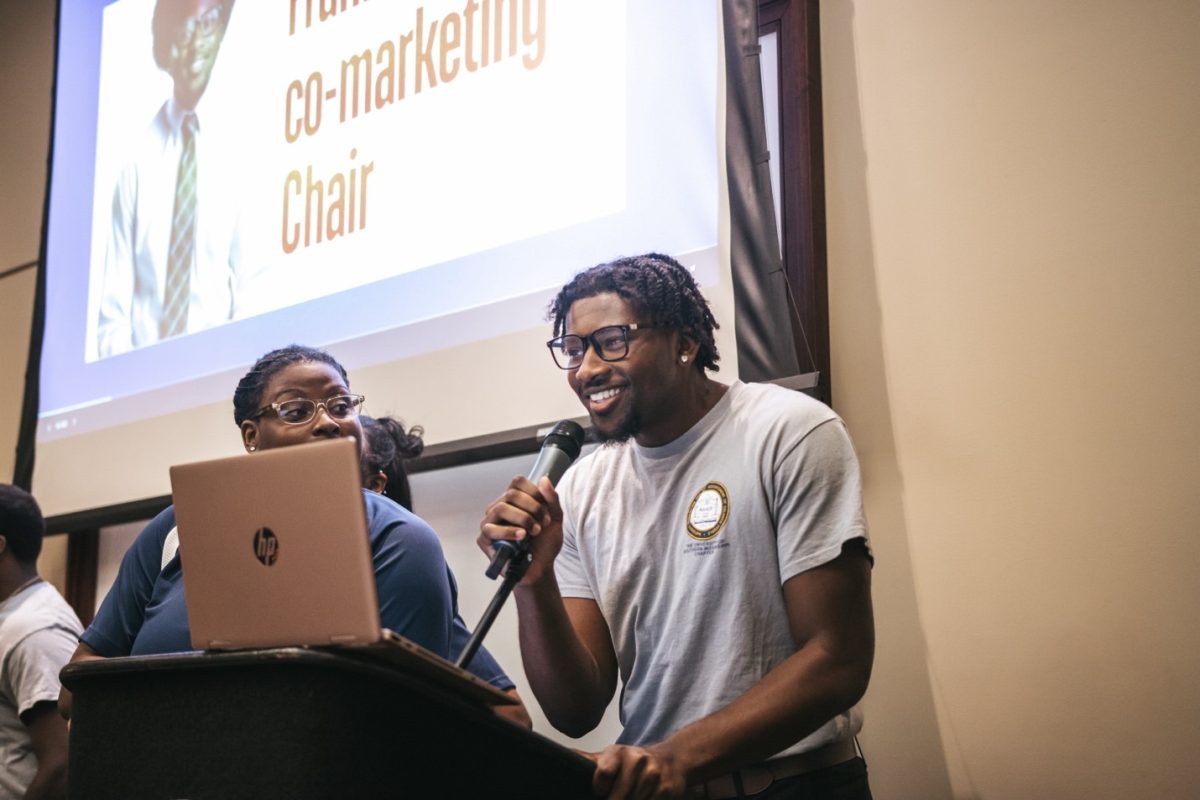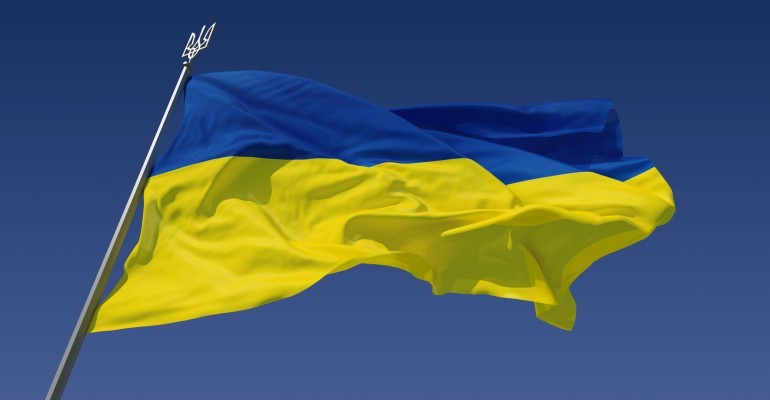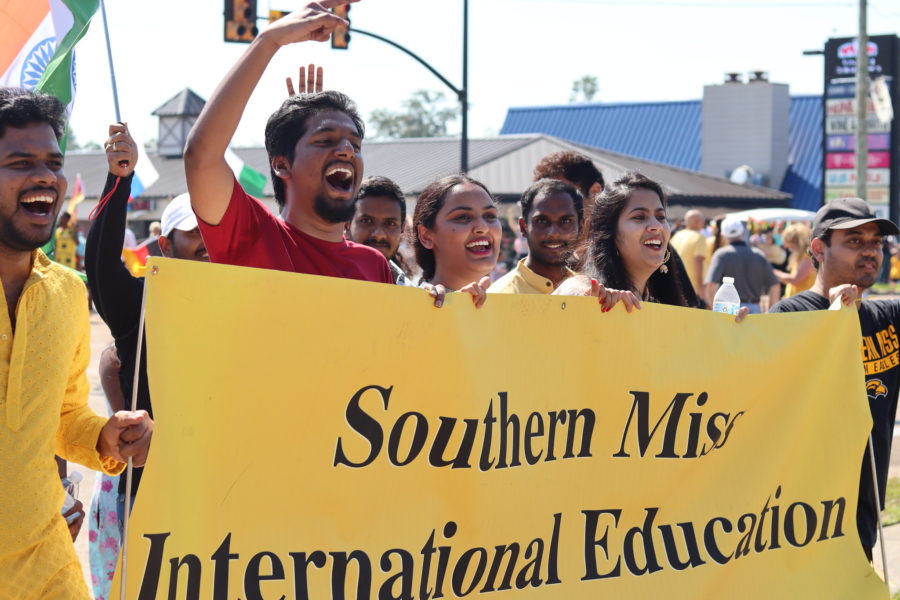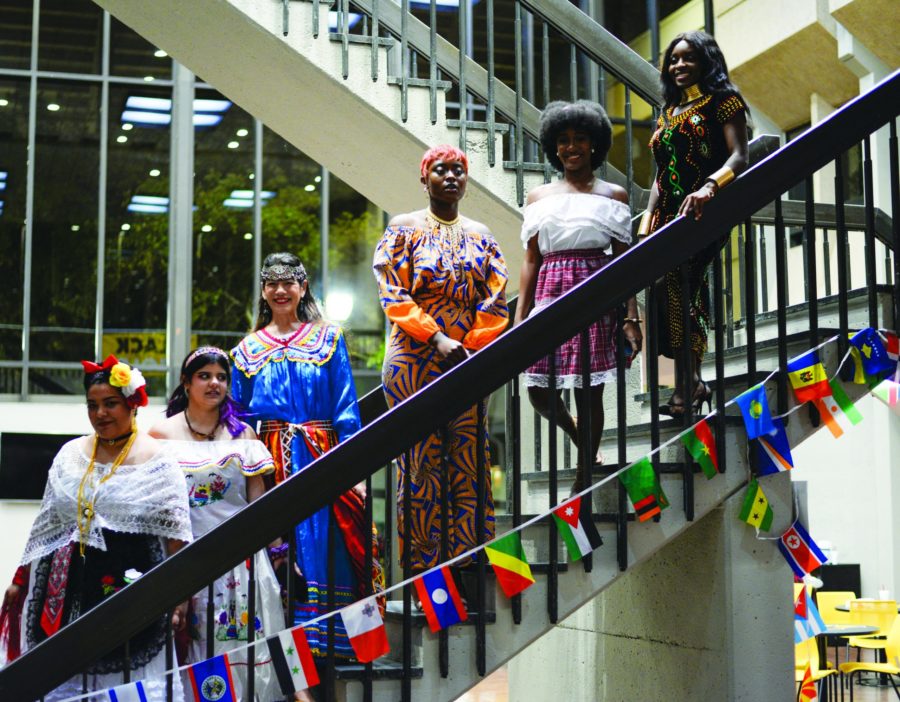While misguided followers terrorize the globe, the USM community reacts to extremists and discuss Islamic myths.
As upperclassmen college students, most remember the fateful morning that two planes crashed into the World Trade Center and changed both the New York skyline and American views of Islam.The universe became an unsure place, where suddenly Middle Eastern power struggles left their nations across the world and found their homes on American soil for the entire nation to see.
Suddenly, not only were Al-Qaida and Bin Laden household names, but rampant Islamophobia ruled the schools and the media with a reign that carried on for over 14 years into today. These events have become an epidemic, with groups such as the Al-Qaida and the Islamic State (previously known as the Islamic State of Iraq and Syria, or ISIS) taking the credit for the attacks.
According to the BBC, an attack on Jan. 7 on Parisian satirical magazine Charlie Hebdo left 11 dead and 11 injured after two masked gunmen invaded the office. The gunmen, brothers Cherif and Said Kouachi, shouted “God is Great” and “We have avenged the Prophet Muhammad” as they attacked the office and were later found to have had jihadist flags in their abandoned getaway vehicle. Both suspects were killed in a firefight with French police two days later.
While the Charlie Hebdo suspects were surrounded, gunman Amedy Coulibaly and a woman called Hayat Boumeddiene held up a Parisian kosher supermarket, claiming that he would not back down until the Kouachi brothers were freed. By the time the elite commandos had stormed the store and fatally shot Coulibaly, four hostages had been killed and 15 were freed.
According to Time Magazine, 15 survivors were later also found hiding in the downstairs cold storage room, led there by Muslim shop employee Lassana Bathily. Boumeddiene, who had previously exchanged over 500 phone calls with the Kouachi brothers, is still wanted by the police and is thought to have fled France. Many Muslims and Islamic leaders cried out in condemnation against these terrorist attacks and others of its kind.
The Washington Post reported on Dec. 15 in Sydney, Australia, a pro-Islamic State fanatic held 17 hostages in a downtown cafe.Grand Mufti Ibrahim Abu Mohamed, the country’s highest Islamic authority, stated: ‘The Grand Mufti and the Australian National Imams Council condemn this criminal act unequivocally and reiterate that such actions are denounced in part and in whole in Islam.”
Muslim students talk faith
 Ameer Buti, a sophomore international business major and president of the Southern Miss Muslim Student Association (MSA), said there are five principles, or “pillars,” of Islam: prayer five times a day, fasting during Ramadan, the pilgrimage to Mecca, the Shahadah or testimony of faith and the zakkat (donation to charity). “Those are just the foundations,” Ameer Buti said. “With it also comes proper presentation of the self and proper intentions.”
Ameer Buti, a sophomore international business major and president of the Southern Miss Muslim Student Association (MSA), said there are five principles, or “pillars,” of Islam: prayer five times a day, fasting during Ramadan, the pilgrimage to Mecca, the Shahadah or testimony of faith and the zakkat (donation to charity). “Those are just the foundations,” Ameer Buti said. “With it also comes proper presentation of the self and proper intentions.”
Wisam Buti, a sophomore microbiology major and vice president of the MSA continued on to broach an uncomfortable topic. “There is also a sixth pillar: jihad,” Wisam Buti said. “(Many people) misuse that word. That translates to ‘the struggle,’ (however) it is an internal struggle with the self. It tries to make you a better person from the inside out.”
Cause of violent outlook
There remains one question to be asked: if Islam is a peaceful religion, what caused this rise in militant Muslims?
Benjamin Hardman, USM professor of religion, said this rise in “Islamic fundamentalists” is not a recent event but has occurred as a result of a slow infection of extremist ideals beginning roughly in the 18th century.
Mohammad Ibn Abd-al-Wahhab was a Muslim scholar in the early 18th century that sought what he called a “true return to Islam,” and believed that Christians and Jews were, according to one of his essays, devil worshippers that should be struck with the sword.
These ideas slowly spread throughout Saudi Arabia and later came into play after the Six Day War. This was a war that, despite heavy Arab advantage, was a victory for the Israelis after only six days of fighting.
“There is this idea that Islam is being spat upon, and the reason (these countries) were in the condition they were in,” Hardman said. “That’s apocalyptic (for the Arabs). This was a civilizational shock, as if God must have been punishing them. (After the war) was when the fundamentalists started to become very powerful.”
Organization and growth
This growth of power brought the rise of such organizations as the IS and Al-Qaida which formed in the late 1980s to support Muslims fighting against the Soviet Union. According to Encyclopedia Britannica, Al-Qaida was not only responsible for the 9/11 attacks, but also claims responsibility for the recent attack on Charlie Hebdo.
According to PBS, the IS formed from a branch of Al-Qaida and has recently risen to power during the Syrian civil war. They currently occupy a large parcel of land in northern Syria as well as many towns in Iraq, with their Iraqi stronghold being in Mosul. Its leader, Abu Bakr al-Baghdadi, claims to be a “caliph” at the head of an Islamic state that would span the entirety of all Islamic nations.
Many young converts have flocked to their ranks, including over 1000 Westerners.
According to the International Business Times, the U.S. Department of State said it claimed knowledge of “dozens” of U.S. citizens fighting with the Islamic State. The Canadian government states there are at least 130 Canadian citizens and the British government’s most recent headcount is 500.
Former Taliban recruiter Mubin Shaikh, who now works in counterterrorism for the Canadian government, told the IB Times that there is a certain criteria that recruiters look for in a potential Westerner. “(We targeted) people who didn’t know the religion as much. People who were converts, because converts would probably have problems with their parents at home, so they were more likely to stay in our company.”
Students react
Craig Smith, a senior foreign language major, said that the Westerners who defected were following what they believed in, which he understood.
“That’s a perfectly human action,” he said. “In this case though, I condemn their actions because ISIS seems to be a group of extremists who are willing to act violently and oppressively in order to establish their caliphate. Everyone has the right to believe what they want, but I feel that one person’s rights stop where they begin to encroach on another person’s rights.”
“(al-Baghdadi) is a self proclaimed scholar, and what knowledge he has he takes out of context and justifies it. That attracts so many ignorant youth,” Ameer Buti said of the IS leader. “Extremists try to tarnish (the Islamic faith.), using recent converts that have little knowledge of the Quran.”
“The Quran is the guidebook to build the house (of faith),” Wisam Buti said. “If I wanted to learn more about Islam, I would go there.”
Some Southern Miss students believe that the saturating of IS and Al-Qaida news in the media is intentional. Patrick Hunter, a sophomore theatre major, said he believed the media is looking for what he called a “real life supervillain.”
“Though yes, these are terrible organizations founded on principles of hate, by keeping news coverage on them (at all times) only serves to spread that message and the fear of these groups,” he said. “At the end of the day I think it’s just fear mongering that will ultimately end with our continued occupation of the Middle East.”
Smith said these attacks could continue, with the possibility of more “lone-wolf” operations such as the attack on the Paris supermarket. “That threat grows with the number of individuals who do go to the Middle East in effort to aid the ISIS effort and receive training, but then return to the U.S. or wherever they came from,” he said.
Smith continued to express his fear for the future of Islam in America. “I fear that the general American populace will see the religion of Islam as a synonym to ISIS,” he said.
“That could result in terrible setbacks regarding civil rights and a rise in xenophobic (sympathies). I feel like many Americans don’t understand that extremism is just that, extremism. It isn’t reflective of the entire religion.”
Extremists have used Islam as a springboard in the past, and now many young Muslims are now fighting against ignorance and seek to show the world the true face of their religion.
Sheila Musaji of The American Muslim states, “There is a struggle going on within all the religious groups, not only for the soul of Christianity, Judaism and Islam, but beyond that, all of us together for the soul of humanity.”

























